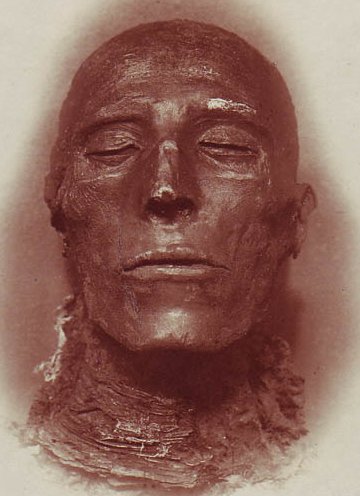Showing posts with label swashbuckler. Show all posts
Showing posts with label swashbuckler. Show all posts
Saturday, November 15, 2014
Blogging Sapper’s Bulldog Drummond, Part Seven – Temple Tower
Temple Tower (1929) was the sixth Bulldog Drummond novel and marked a departure from the series formula. Having killed Carl Peterson off at the conclusion of the fourth book and dealt with his embittered mistress Irma’s revenge scheme as the plot of the fifth book, Sapper took the series in an unexpected direction by turning to French pulp fiction for inspiration.
Sapper also placed Hugh Drummond in a supporting role and elevated his loyal friend Peter Darrell to the role of narrator. The subsequent success of the venerable movie series and the future controversies generated by Sapper’s reactionary politics and bigotry obscured the versatility of his narratives and led to his being under-appreciated when considered with his peers.
French pulp literature from the mid-nineteenth to the early twentieth century was particularly rich. While Jules Verne and Alexandre Dumas remain the best known French pulp authors of the era, Paul Feval’s highly influential swashbuckler, Le Bossu [“The Hunchback’] (1857) and his expansive criminal mastermind saga, Les Habits Noirs [“The Black Coats”] (1844 -1875) did much to set the stage for Pierre Souvestre and Marcel Allain’s long-running absurdist thriller series, Fantomas (1911 – 1963) as well as Arthur Bernede’s seminal masked avenger Judex (1916 – 1919). Pioneering French filmmaker, Louis Feuillade adapted both Fantomas and Judex to the silent screen as well as creating his own epic Apaches crime serial, Les Vampires (1915 - 1916).
TO CONTINUE READING THIS ARTICLE, PLEASE VISIT THE BLACK GATE.
Labels:
adventure,
Bulldog Drummond,
detective,
French pulp,
mystery,
pulp fiction,
Sapper,
swashbuckler,
thriller
Thursday, September 4, 2014
Blogging Sax Rohmer…In the Beginning, Part Three
“The M’Villin” was first published in Pearson’s Magazine in December 1906. Rohmer was still writing under the slightly modified version of his real name, A. Sarsfield Ward. The story represented a quantum leap forward in the quality of Rohmer’s fiction and shows the influence of Alexandre Dumas’ swashbucklers. Dumas remained a surprising influence on the author who still turned out the odd swashbuckler as late as the 1950s. It should also be noted that the character of Lola Dumas in President Fu Manchu (1936) is said to be a descendant of the famous author while The Crime Magnet stories Rohmer penned in the 1930s and 1940s feature Major de Treville, a character whose surname suggests he is a descendant of the commander of the Musketeers from Dumas’ D’artagnan Romances.
Colonel Fergus M’Villin may be oddly named, but he makes for a fascinating character. An expert swordsman and fencing master, he is also a bit of a cad. The story of how he comes to avenge the honor of the man he previously slew in an earlier duel maintains the breezy good humor and spirit of adventure that colors The Three Musketeers in its earlier chapters. Rohmer thought well enough of the character to have penned a sequel, “The Ebony Casket,” but it was never published. The manuscript survived up until the year 2000 when it was junked in Tokyo by a family who did not imagine its worth to collectors.
Rohmer remained proud of the story and included it in his 1932 collection of short fiction, Tales of East and West. He slightly altered the spelling of the character’s name and story’s title to “The McVillin.” It only appears in the rare UK edition published by Cassell and not the US edition or its reprint by Bookfinger. The story was not reprinted until Gene Christie collected it for the first volume of Black Dog Books’ Sax Rohmer Library, The Green Spider and Other Forgotten Tales of Mystery and Suspense in 2011.
TO CONTINUE READING THIS ARTICLE, PLEASE VISIT THE BLACK GATE.
Labels:
detective,
pulp fiction,
Sax Rohmer,
swashbuckler,
thriller
Thursday, November 7, 2013
Jack Ripcord and the Evolution of Pulp
Pulp fiction is alive and well in the new millennium as a niche market fed by reprints of classic pulps, revivals of countless public domain properties, licensed continuations that protect aging copyright claims, and even new pulp fiction cut from the cloth of the classic originals. The evolution of western hero to an archetypal pulp hero has happened once more in this fringe market in the case of western author Thomas McNulty.
A veteran western writer in the Zane Grey and Louis L’Amour tradition, McNulty has made the transition from cowboy hero to pulp hero with his latest novel, Jack Ripcord. The title character for a planned trilogy of books, there is no mistaking that Jack Ripcord is an alter ego of the author from the cover character portrait to the way that the story functions as a synthesis of all of McNulty’s interests.
TO CONTINUE READING THIS ARTICLE, PLEASE VISIT THE BLACK GATE ON FRIDAY.
Labels:
cliffhanger,
cowboy,
demon,
hardboiled,
Jack Ripcord,
Nazi,
New Pulp,
occult,
pulp fiction,
serials,
swashbuckler,
Thomas McNulty,
werewolf,
western,
witch,
Wounded Outlaw Books
Subscribe to:
Posts (Atom)


.jpg)